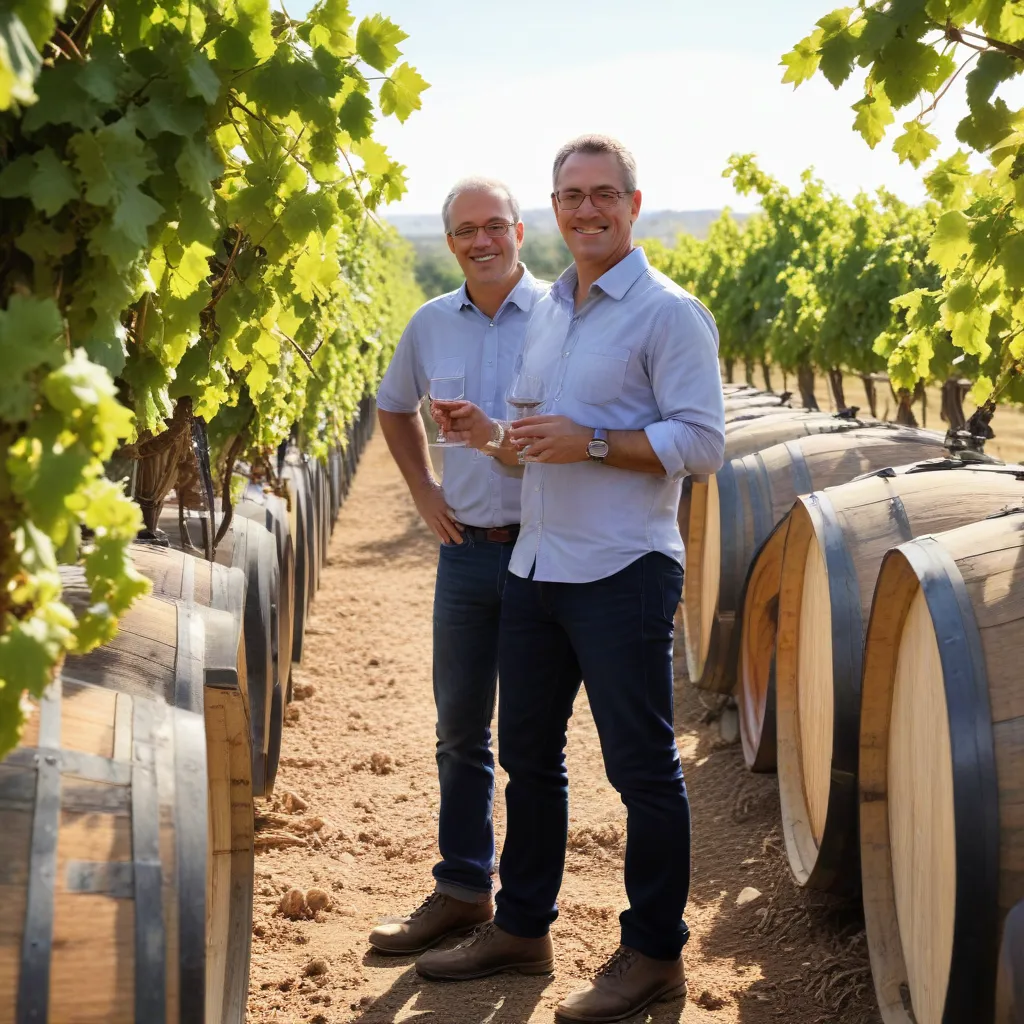
Winemaking is not merely a craft; it is a captivating narrative that unfolds from the vineyard to the glass, revealing the intricate dance between science and artistry. As a winemaker at the heart of this journey, I’ve witnessed the transformative power of innovation – from cutting-edge viticulture techniques to pioneering fermentation processes and sustainable practices. In this article, I’ll share my insights on why innovation is the cornerstone of a thriving wine industry.
The Winemaking Process
The story of wine begins in the vineyard, where the choice of grape varietals and the unique characteristics of the terroir set the foundation for the final product. Here, the science of viticulture and the art of grape cultivation converge. Skilled growers meticulously manage the vines, studying soil compositions and microclimates to nurture each cluster. The timing of the harvest is a crucial decision, as it can significantly impact the wine’s acidity, sweetness, and overall flavor profile.
Once the grapes reach the winery, the process of fermentation begins – a transformative stage where science truly shines. Yeast cells convert the grape sugars into alcohol, carbon dioxide, and heat, creating the desired balance of flavors, aromas, and alcohol content. The winemaker’s expertise lies in guiding this delicate dance of chemistry and biology, ensuring the wine’s character aligns with their vision.
As the wine ages and undergoes blending, the winemaker’s artistry comes to the forefront. Decisions regarding the type of aging vessel, the duration, and the blending of different grape varieties or batches all contribute to the final product’s complexity and harmony. These choices are akin to an artist selecting their palette and brushstrokes, reflecting the winemaker’s creative interpretation of the terroir.
The Role of Innovation
In an industry steeped in tradition, the ability to embrace innovation is crucial for continued growth and relevance. Winemakers who harness the power of new technologies and sustainable practices are poised to elevate their wines and strengthen their position in the global market.
Technological Advancements
From precision viticulture techniques that optimize vine management to advanced fermentation monitoring systems, technological innovations have transformed the winemaking landscape. By leveraging data-driven insights, winemakers can fine-tune their processes, enhance quality control, and adapt to evolving environmental conditions.
Sustainable Practices
Increasingly, consumers are seeking wines that not only delight the palate but also align with their eco-conscious values. Winemakers who adopt sustainable practices, such as organic farming, water conservation, and renewable energy sources, are meeting this demand while also safeguarding the long-term health of their vineyards and the surrounding ecosystem.
Market Trends
As the global wine market continues to evolve, winemakers must stay attuned to shifting consumer preferences and market dynamics. Innovations in packaging, marketing, and distribution can help wineries reach new audiences, differentiate their products, and adapt to changing trends.
Challenges Faced by Winemakers
While the winemaking journey is rich with possibilities, it also presents significant challenges that require innovative solutions.
Climate Change
The impacts of climate change on viticulture are becoming increasingly evident, with shifts in temperature, precipitation patterns, and the frequency of extreme weather events. Adaptable winemakers are exploring innovative grape varietals, canopy management techniques, and water-efficient farming methods to mitigate these challenges.
Evolving Consumer Preferences
Today’s wine enthusiasts are more discerning than ever, seeking unique experiences and a deeper connection to the stories behind every bottle. Winemakers must continuously innovate to meet these evolving preferences, whether it’s crafting artisanal blends, experimenting with non-traditional grape varieties, or enhancing their direct-to-consumer outreach.
Regulatory Landscape
The wine industry is subject to a complex web of regulations, taxes, and trade policies that can significantly impact a winemaker’s operations. Innovative winemakers stay ahead of the curve by closely monitoring the regulatory landscape, advocating for favorable policies, and finding creative ways to navigate these challenges.
The Importance of a Winemaker’s Perspective
As a winemaker, I’ve had the privilege of witnessing the transformative power of innovation firsthand. By drawing insights from global experts, collaborating with industry peers, and continuously challenging the status quo, I’ve seen how innovation can propel a winery’s success and elevate the entire wine region.
Insights from Industry Experts
Participating in conferences like the Dirt to Glass (D2G) event in Michigan has been a game-changer for me. By engaging with leading viticulturists, enologists, and industry thought leaders, I’ve gained invaluable knowledge on cutting-edge techniques, sustainable practices, and strategies for enhancing regional recognition. These insights have directly informed my own winemaking approach and helped me identify new avenues for growth.
Lessons from Successful Wineries
From the pioneering work of Cantina Terlano in Italy to the innovative marketing strategies of Nieto Senetiner in Argentina, I’ve closely studied the journeys of wineries that have successfully navigated the path from relative obscurity to global recognition. Their relentless focus on quality, sustainability, and brand-building has provided a roadmap for me to emulate and adapt to my own regional context.
Adapting to a Changing Industry
As the wine industry continues to evolve, winemakers must be nimble and responsive to emerging trends and challenges. By embracing innovative mindsets and practices, we can not only adapt to change but also shape the future of our craft. Whether it’s exploring novel grape varieties, implementing precision agriculture techniques, or forging strategic partnerships, innovation is the key to ensuring the long-term success and sustainability of our beloved wine region.
The journey from grape to glass is a captivating narrative, woven with the threads of science, art, and human endeavor. As a winemaker, I am committed to harnessing the power of innovation to elevate the quality of our wines, strengthen our regional reputation, and foster a thriving, sustainable wine industry for generations to come. By embracing change and pushing the boundaries of what’s possible, we can ensure that every sip tells a story worth sharing.
